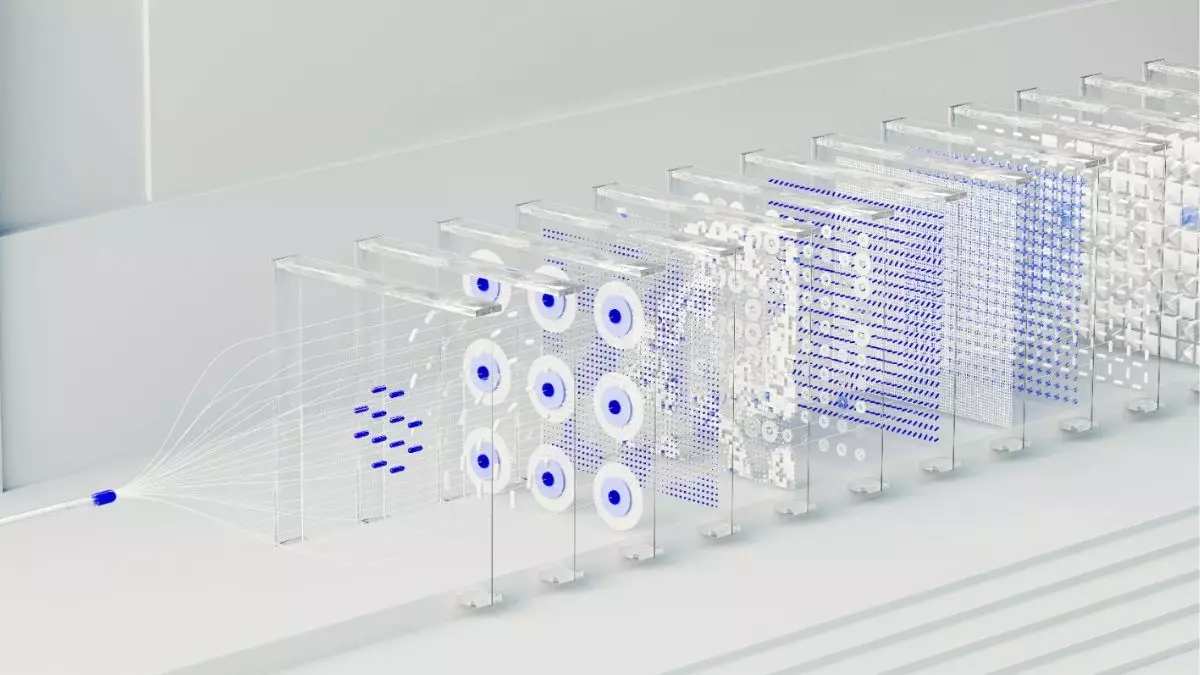In the rapidly evolving landscape of technology, the intersection of artificial intelligence (AI) and robotics has opened new frontiers, particularly in the field of scientific research. Tetsuwan Scientific, a startup nestled in the heart of San Francisco, has emerged as a pioneer in this domain, devising AI-driven robotics that aim to replicate the intricate tasks traditionally performed by scientists. Founded recently in 2023, the company has set its ambitions high, aspiring not just to enhance laboratory efficiency, but to fundamentally redefine the scientific process itself.
Co-founded by Cristian Ponce, who serves as CEO, and Théo Schaefer, the Chief Technology Officer, Tetsuwan Scientific offers a compelling vision that seeks to address a significant gap in current scientific practices. The journey began in stealth mode, where the founders devoted themselves to developing a revolutionary product that would ultimately catalyze scientific experiments into a streamlined, automated process. Revealed to the public in November following a fruitful seed funding round, the startup is collaborating with La Jolla Labs, focusing on RNA therapeutic drug development—an area ripe for innovation.
Tetsuwan’s primary motivation is to correct a fundamental flaw in existing laboratory automation, which often emphasizes high volumes of repetitive experiments instead of fostering a diverse array of scientific inquiries. Current lab robots are heavily reliant on pre-structured programming, which restricts their operational flexibility and constrains them to rigid assembly line tasks. Tetsuwan Scientific aims to disrupt this model by devising intelligent robots capable of understanding and executing scientific intent autonomously.
A key obstacle that has traditionally hampered the automation of scientific research is the inability of robots to grasp or interpret the underlying intentions behind scientific inquiries. While automation technology has advanced, it often falls short in adjusting to the nuanced demands of diverse scientific protocols. Instead of acting as collaborative assistants to researchers, current robots are relegated to operating like assembly line machines.
Tetsuwan’s innovative approach leverages advancements in generative AI, particularly in the realm of large language models (LLMs). These sophisticated systems enable the communication of complex scientific concepts to robots without the necessity of extensive programming. This capability is significant for researchers who aim to adapt their experiments rapidly without getting bogged down in technical details.
The start-up underscores a dual approach—melding intelligent software with versatile robotic hardware is crucial to their groundbreaking mission. In an enlightening interview with TechCrunch, Ponce discussed the prospects of the Retrieval-Augmented Generation (RAG) framework as a vital tool for minimizing AI hallucinations, establishing a robust communicative bridge between researchers and robots. This framework ensures that the developed AI systems remain grounded in reality, vastly improving their reliability.
Tetsuwan Scientific’s robots, which deviate from the humanoid norm, are distinct with their striking glass-like structures. These square-shaped entities are engineered to autonomously perform scientific evaluations and adjust experimental parameters as necessary without human oversight. Equipped with advanced AI software and sensors, these robots possess the capability to analyze technical standards such as calibration and liquid classification, which are vital for conducting precise scientific research.
Despite being in early stages of development, Tetsuwan Scientific harbors the ambitious goal of creating fully autonomous AI scientists that can undertake the entire scientific process—from hypothesis formulation to experimentation and ultimately, innovation. The implications of such technology are profound; a system of this nature could lead to unprecedented acceleration in discoveries within various scientific fields, including pharmaceuticals, biotechnology, and environmental science.
With the proliferation of AI and robotics in everyday industries, Tetsuwan Scientific positions itself as a harbinger of change, potentially steering the scientific community into a new era where human ingenuity is complemented and enhanced by intelligent machines. As we continue to witness such advancements, it is vital to maintain a lens of caution—ensuring that ethical implications and the potential consequences of autonomous robots in science are at the forefront of this exciting shift.
Tetsuwan Scientific stands at the threshold of what could be a revolutionary chapter in scientific inquiry. By bridging the gap between robots and the intricate nuances of scientific thought, they may very well unlock pathways to discoveries that lie beyond the reach of traditional research methods. It is an endeavor worth watching as it unfolds in the coming years.


Leave a Reply